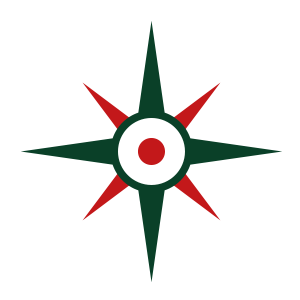ISM News
Update nr. 91
In this ISM News Update:
- RBG at full strength from 1st of March
- Netherlands Regulatory Framework link
- Medical Care and Medical First Aid
- IMO circular STCW.7/Circ.24 including an explanation on interpretation STCW
- Calibration of portable atmosphere testing instruments
RBG at full strength from 1st of March
After our co-worker Joke decided to continue her career with our colleagues from the Maritime Academy in Harlingen, we have found a good successor in Margreet. Margreet previously worked for a shipping company in Harlingen where she gained knowledge with regards to KIWA, CoCs and processing ISM related documents together with the dynamics the shipping industry affords. She will start at Rood Boven Groen from the 1st of March.
In addition, we have hired Dominique, who will help our team with administrative tasks leaving us time to concentrate on the details.
We appreciate that more and more companies are approaching us for help communicating with competent authorities in relation to issues surrounding new and changing legislation. Expanding our workforce is therefore necessary. Our team will be at full strength again soon which allows us to continue supplying the quality you’ve come to expect from us.
Netherlands Regulatory Framework – addition to ISM News update # 90
Please use this link to the Netherlands Regulatory Framework:
https://puc.overheid.nl/nsi
Medical Care and Medical First Aid
Since 1-1-2017 serving officers with a Medical Care certificate must also possess a valid certificate Medical First Aid. This must be shown at every application for a CoC and possibly a PSC.
Many were/are under the assumption that the Medical Care training covers the Medical First Aid training. In the past usually only the Medical Care (Medical training Unlimited) needed to be refreshed.
Dutch training institutes make a clear distinction between the Medical First Aid training (STCW Reg.VI/4-1, two-day training) and Medical Care (STCW Reg.VI/4-2, three-day training).
However, there are currently problems with some foreign certificates Medical Care achieved in recent years (among others in Spain and Germany). These are often courses of four or more days and sometimes is not clear whether the training also includes the Medical First Aid. Some foreign training institutes are currently working on a solution: either by giving an additional Medical First Aid certificate or by issuing a statement. For now, we encourage everyone with a foreign Medical Care Certificate to contact the appropriate training institute for further clarification.
We recommend that seafarers who still need to obtain this training clarify in advance that both certificates are issued.
Mo-Co of Hamburg has announced that it will soon issue certificates for Medical First Aid AND Medical Care also for already undergone training.
IMO circular STCW.7/Circ.24 including an explanation on interpretation STCW
Following misunderstandings and ambiguities, especially during Port State inspections, the IMO circular STCW.7 / Circ.24 came about. We encourage everyone to keep this circular on board to avoid possible problems during inspections. The circular can be downloaded from our website:
http://www.roodbovengroen.com/website/managedMedia/mediaItem/331.pdf
The explanation contains the following:
- The number of certificates of competency, other certificates and documentary proof that any seafarer may be expected to provide under the STCW convention requirements is limited, as set out in Table B-I/2 of the STCW Code. During inspections, port state authorities are to limit their demands in regards to these certificates of competency, other certificates and documentary proof accordingly.
- IMO Model Courses are merely an example of how any part of the STCW code might be read and is not an official interpretation. On the basis of the STCW Convention, therefore certificates and documentary proof, provided during inspections, cannot be required to contain any references to IMO Model Courses.
- The correct reference to any certificates of competency, other certificates and documentary proof in regard to the STCW Convention is: ‘the International Convention on Standards of Training, Certification and Watchkeeping for Seafarers,1978, as amended’. However, it is possible that certificates of competency, other certificates and documentary proof with an alternatively worded reference to the STCW Convention may be in circulation. These documents have to be accepted nevertheless.
- Any masters’, officers’ or maritime officers’ certificate of competency is considered valid documentary proof of meeting the requirements regarding generic practical skills in operating ECDIS equipment.
- Any type-specific skills required to operate the ECDIS equipment in question may be acquired through on-board familiarisation training. Therefore type-specific training and documentary proof of completion of said training is not required.
- The introduction of the following new qualifications: Able Seafarer Deck (II/5), Able Seafarer Engine (III/5), Electro-Technical Officer (III/6) and Electro-Technical Rating (III/7) does not automatically mean that these qualifications have to be represented on board all ships. Having seafarers with said qualification on board is only a mandatory requirement if and when the qualification in questions have been listed in the ship’s manning document (MSMD) or if any seafarers have been employed in these specific positions.
Calibration of portable atmosphere testing instruments
Calibration of portable atmosphere testing instruments may be achieved on board or ashore in accordance with the manufacturer’s instructions. This way you ensure compliance with the provision “suitable means shall be provided for the calibration of all such instruments” in SOLAS regulation XI-1/7, as adopted by resolution MSC.380(94).
The above was announced in the IMO circular MSC.1/Circ.15 (28-11-2016).



